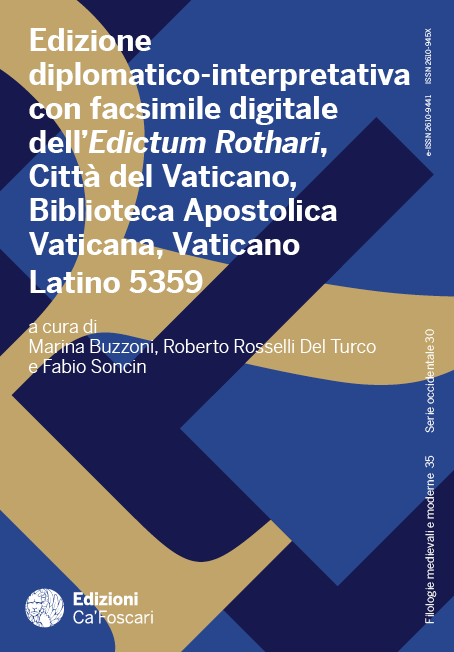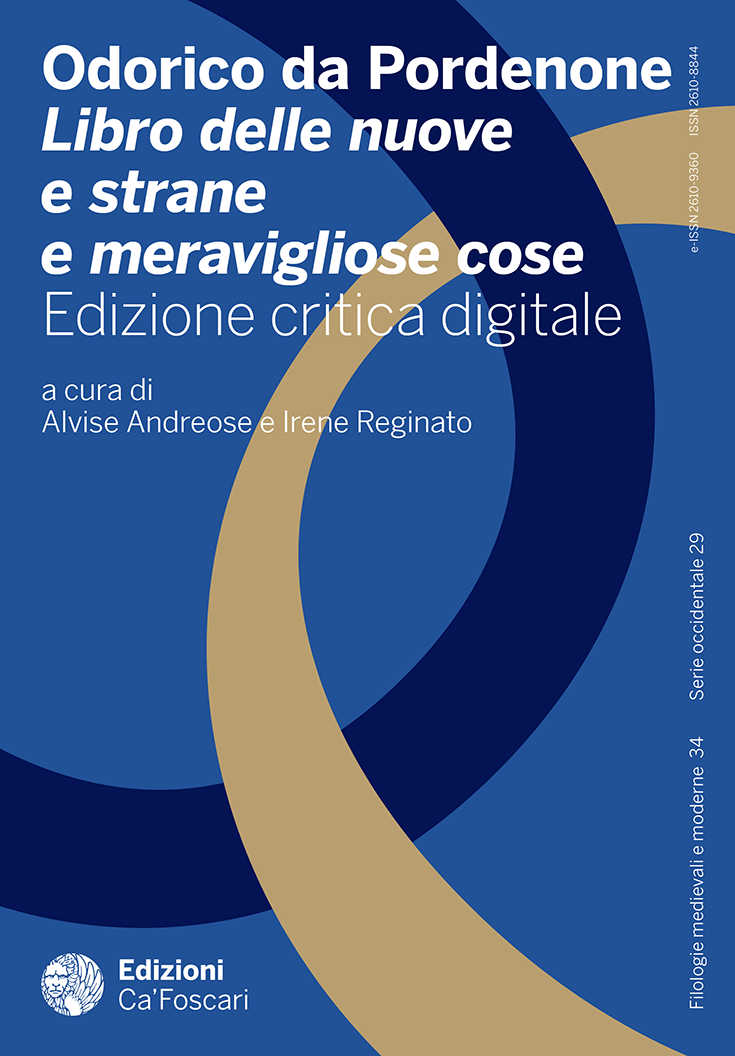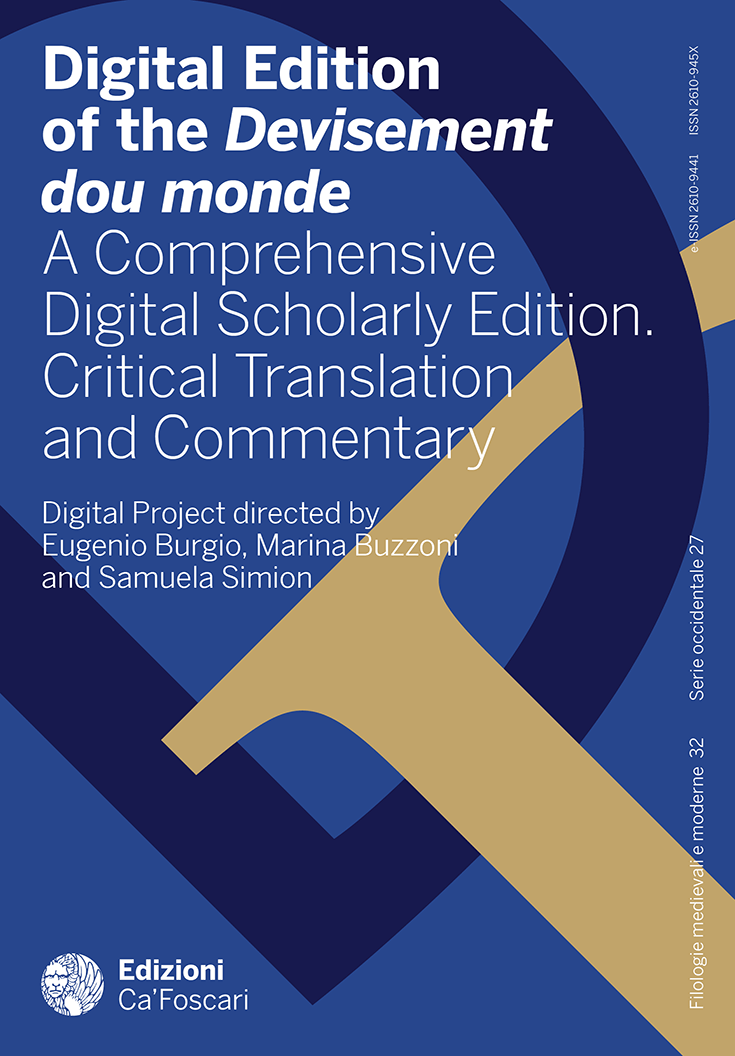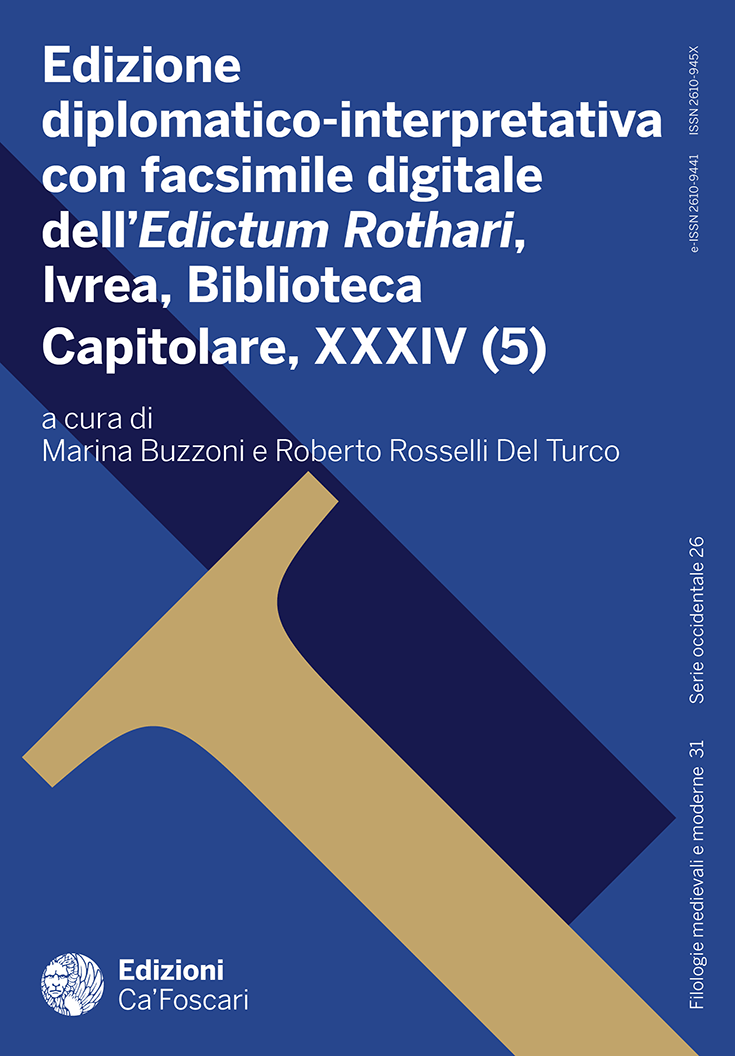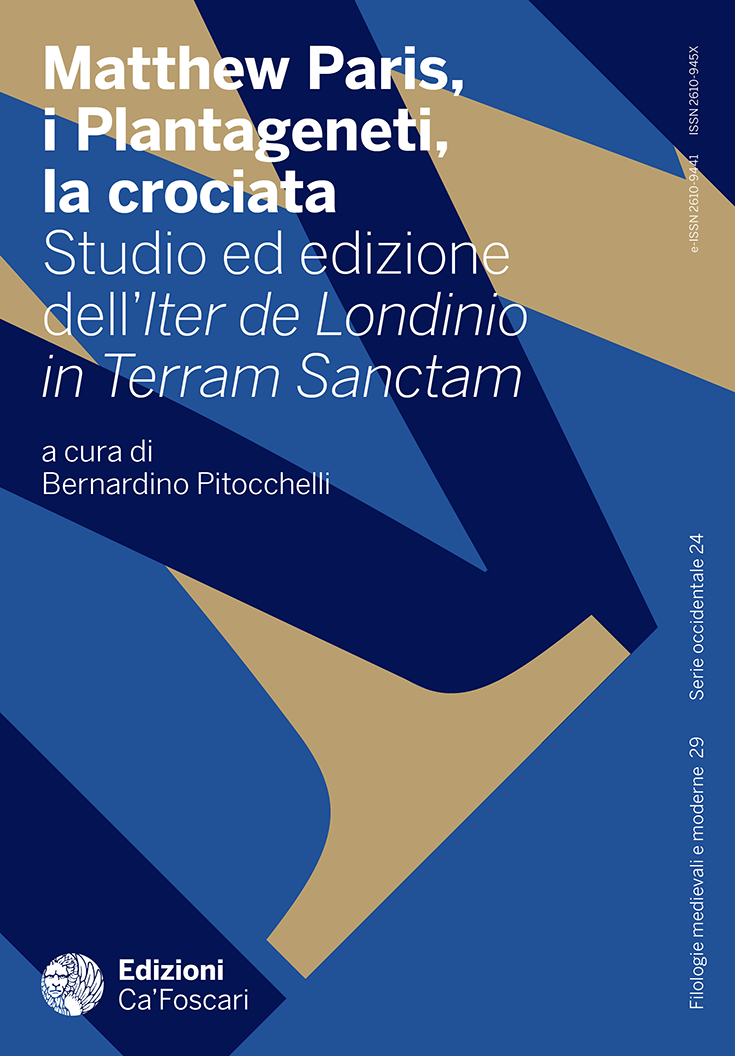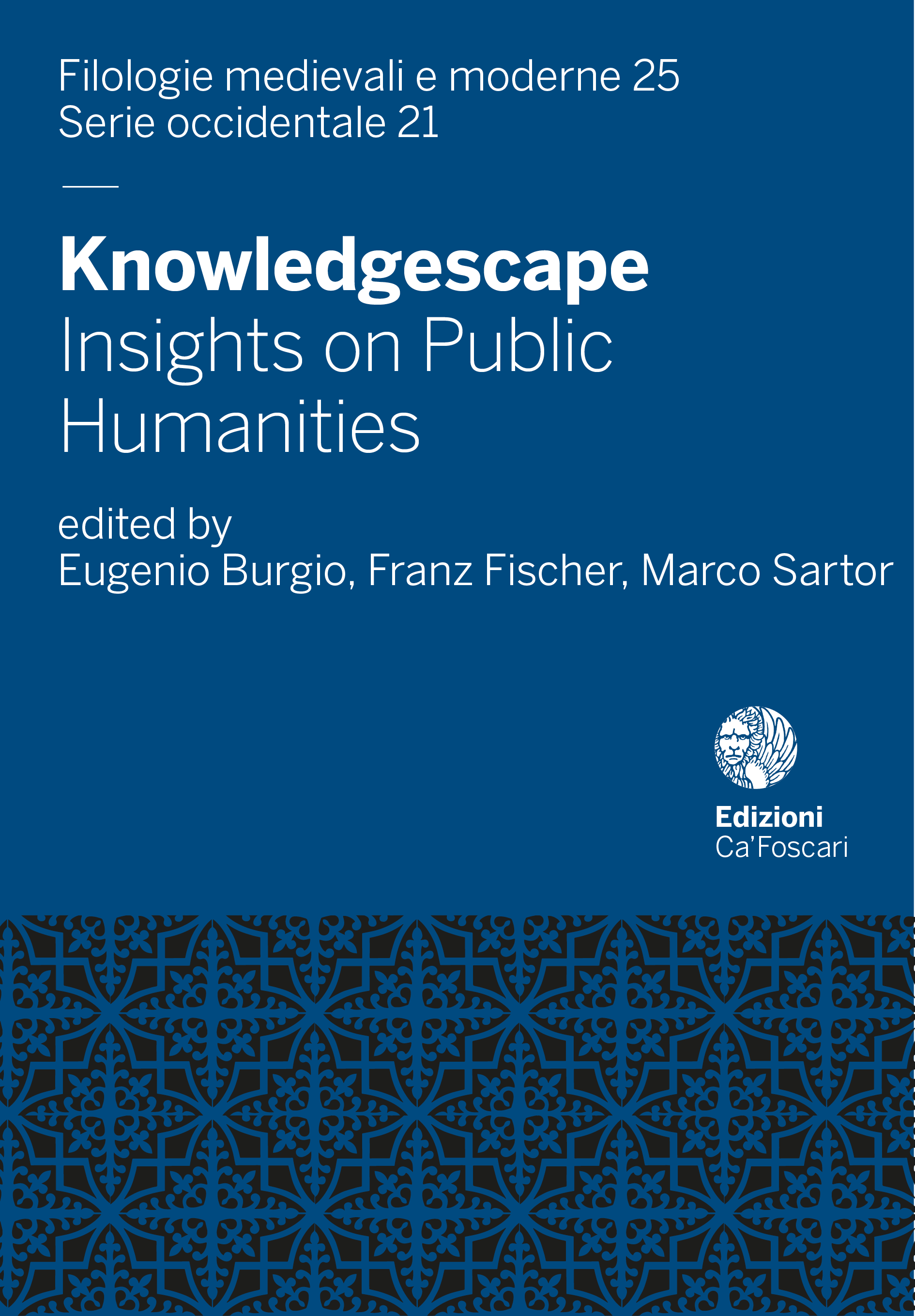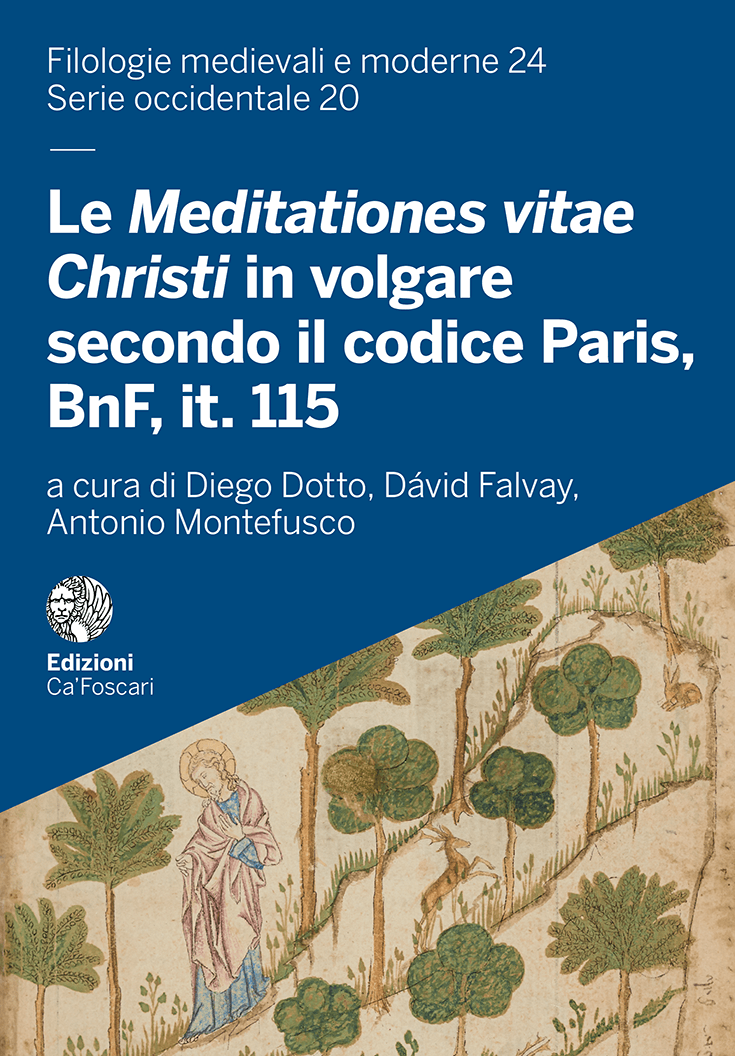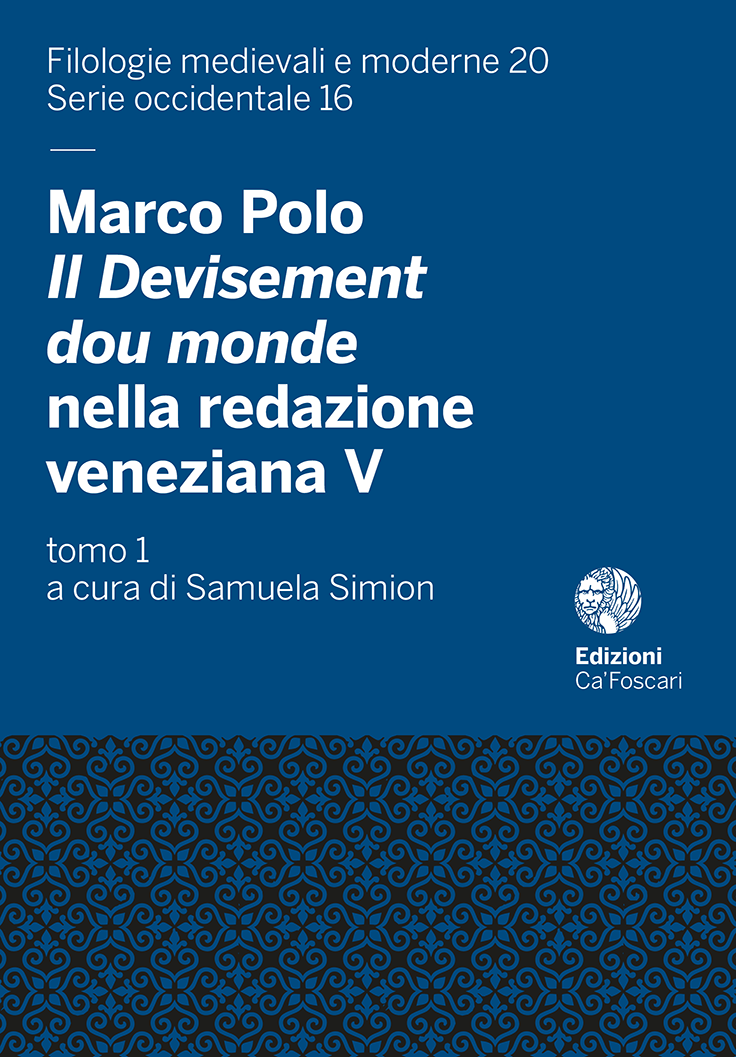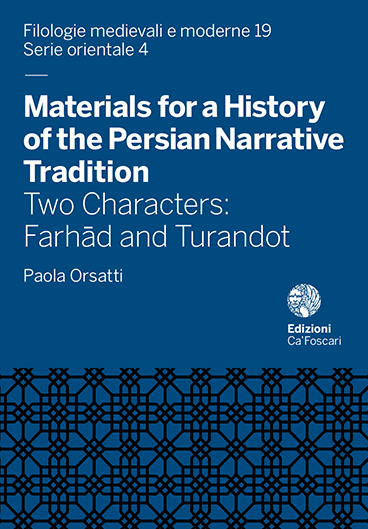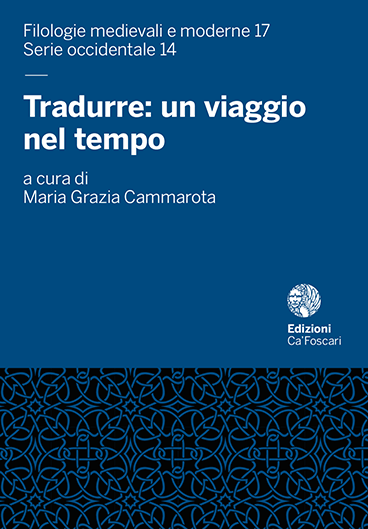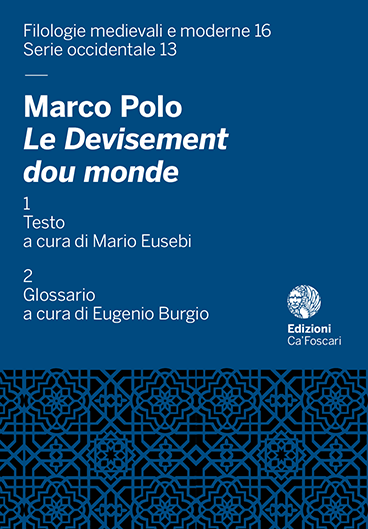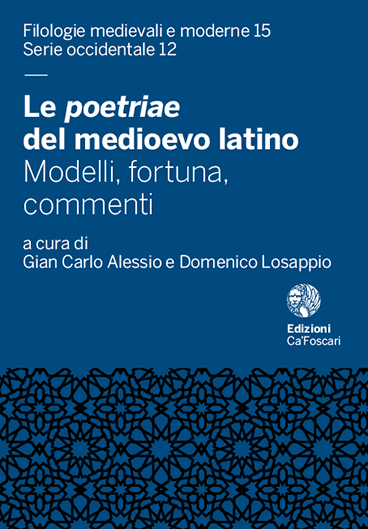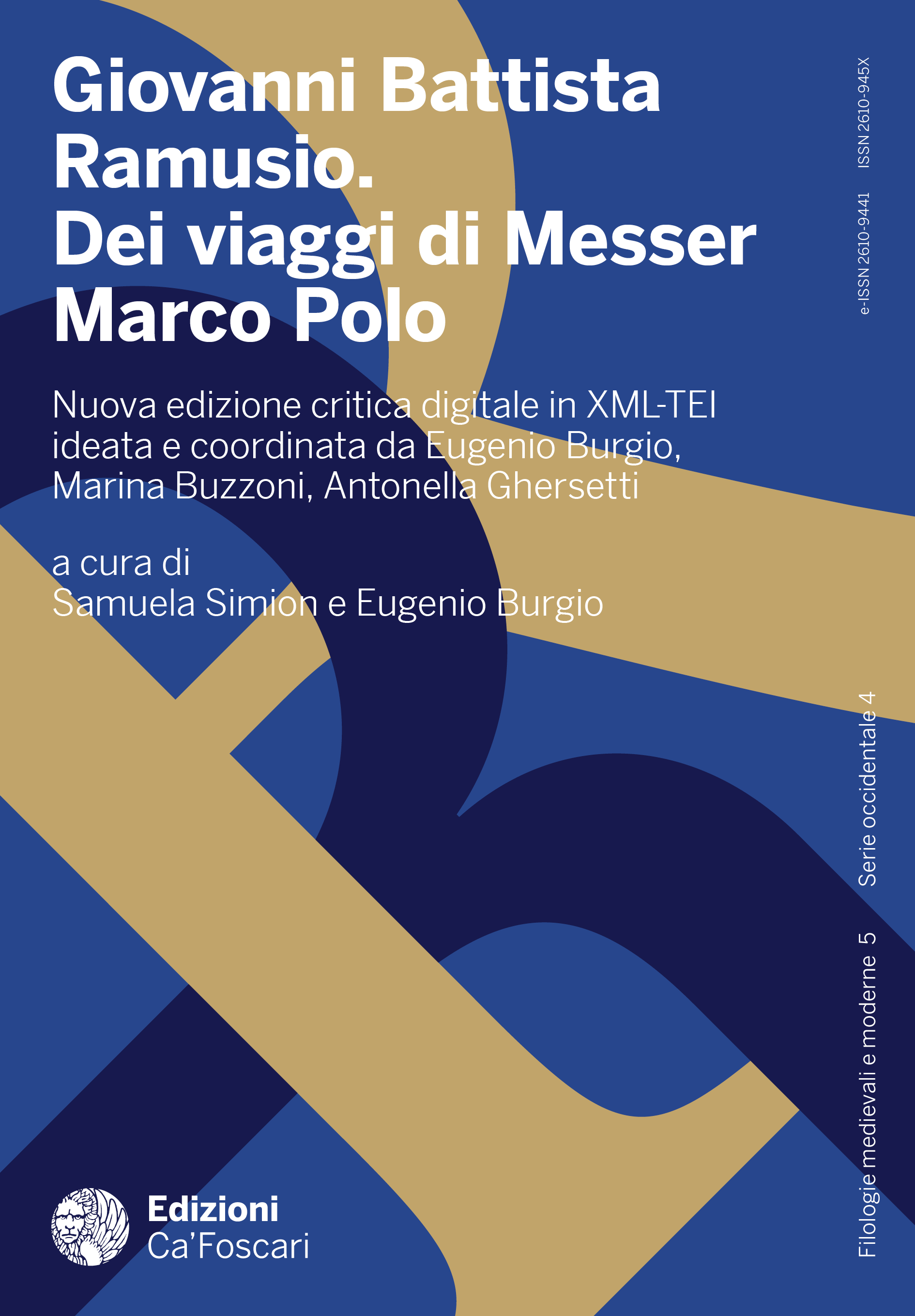Medieval and Modern Philologies
open access | peer reviewed
Aims & Scope
The series is currently divided into Serie occidentale and Serie orientale, which will gather research of philological nature (critical editions, monographs, research on printed and manuscript traditions, methodological essays, proceedings of seminars and conferences); its primary goal is to be the ‘place’ of exchange and of intellectual collaboration among scholars of the Western and Eastern traditions: first of all, those who work in the University, but also, and with particular attention, the external ones. Texts written in the main languages of modern cultures will be welcomed; special attention will be devoted to the testing of computer critical editions.
Permalink doi.org | e-ISSN 2610-9441 | ISSN 2610-945X | Language en, fr, it | ANCE E234816
Subseries
Serie occidentale
e-ISSN
2610-9441
ISSN
2610-945X
Serie orientale
e-ISSN
2610-9476
ISSN
2610-9468
Copyright This is an open-access work distributed under the terms of the Creative Commons Attribution License (CC BY). The use, distribution or reproduction is permitted, provided that the original author(s) and the copyright owner(s) are credited and that the original publication is cited, in accordance with accepted academic practice. The license allows for commercial use. No use, distribution or reproduction is permitted which does not comply with these terms.
Latest published volume

- Fiore dei conversi. Testo inedito di fine secolo XIV
- Jan. 12, 2026
- Fiore dei conversi is an anonymous poem in refrained sonnets (372 poems) dating back to the end of the fourteenth century and preserved in a single manuscript (Vatican Apostolic Library, Chig. M.IV.99). It recounts an allegorical journey among the stars and to Paradise undertaken by the protagonist while still alive, accompanied by a wise and faithful guide, often referred to as the duca. This work presents the critical edition of the poem: the first part (chapters 1‑6) offers a general introduction to the text from a literary and linguistic perspective, and includes a codicological description of the manuscript. Within this section, one chapter is devoted to the influence of Dante’s Commedia on the imagination, linguistic usus scribendi, and stylistic register of the anonymous poet. Furthermore, the study advances the hypothesis of a geographical localisation of the poem on the basis of several relevant linguistic features, whose presence suggests an origin in central Italy, particularly in Umbria. The second section of the work (chapter 7) contains the critical edition of the sonnets: each poem is preceded by an introduction summarising its content and followed by a commentary highlighting its most notable literary aspects. The poem may be considered one of the most interesting and innovative examples of the reception and reworking of Dante’s masterpiece, the Commedia.
- 1 download 120 search
- Edizione diplomatico-interpretativa con facsimile digitale dell’Edictum Rothari, Città del Vaticano, Biblioteca Apostolica Vaticana, Vaticano Latino 5359
- Dec. 10, 2025
- 0 download 266 search
- Odorico da Pordenone. Libro delle nuove e strane e meravigliose cose
- Oct. 15, 2025
- 129 download 980 search
- Pratiche di scrittura e contesti culturali intorno a Marco Polo
- April 16, 2025
- 2 download 1204 search
- Digital Edition of the Devisement dou monde
- Forthcoming
- 0 download 928 search
- Edizione diplomatico-interpretativa con facsimile digitale dell’Edictum Rothari, Ivrea, Biblioteca Capitolare, XXXIV (5)
- Oct. 30, 2024
- 0 download 561 search
- Edizione diplomatico-interpretativa con facsimile digitale dell’Edictum Rothari, Vercelli, Biblioteca e Archivio Capitolare, CLXXXVIII
- Oct. 30, 2024
- 464 download 2073 search
- Matthew Paris, i Plantageneti, la crociata
- April 5, 2024
- 156 download 972 search
- Il volgarizzamento della Brevis introductio ad dictamen del codice Riccardiano 2323
- Sept. 26, 2023
- 838 download 2725 search
- Metafore e linguaggio figurato nel Medioevo e nell’opera di Dante
- June 6, 2023
- 1530 download 3013 search
- Authors as Readers in the Mamlūk Period and Beyond
- March 8, 2022
- 299 download 1076 search
- Knowledgescape
- Sept. 6, 2021
- 1641 download 4958 search
- The Meditationes Vitae Christi in the Vernacular According to the MS Pris, BnF, en. 115
- June 9, 2021
- 444 download 1465 search
- Galileo in Europe
- Dec. 1, 2020
- 517 download 1879 search
- Beyond the ‘Classical’ Sources
- Oct. 23, 2020
- 749 download 2593 search
- «Ad consolationem legentium»
- July 27, 2020
- 575 download 1938 search
- Marco Polo. Il Devisement dou monde in the Venetian Edition V (cod. Hamilton 424 in the Staatsbibliothek, Berlin)
- Dec. 6, 2019
- 450 download 1871 search
- Materials for a History of the Persian Narrative Tradition
- Oct. 30, 2019
- 607 download 2119 search
- Theologus Dantes
- Dec. 17, 2018
- 671 download 2738 search
- Translating: A Journey in Time
- May 24, 2018
- 1663 download 5753 search
- Marco Polo. Le Devisement dou monde
- May 7, 2018
- 549 download 2175 search
- The poetriae of the Latin Middle Ages
- March 16, 2018
- 382 download 1587 search
- The Book of the Wandering Camels and Those Who Herd Them
- Sept. 18, 2017
- 230 download 985 search
- The Koranic Lexicon of Flora and Fauna
- Dec. 18, 2016
- 437 download 1795 search
- Luigi Foscolo Benedetto, Livre de messire Marco Polo citoyen de Venise, appelé Milion, où sont décrites les Merveilles du monde
- Nov. 3, 2016
- 348 download 1466 search
- New Epistle Territories Between the 15th and 16th Centuries
- April 1, 2016
- 399 download 1592 search
- De prospectiva pingendi
- June 30, 2016
- 462 download 1967 search
- Contacts of Languages - Contacts of Writings
- Dec. 1, 2015
- 327 download 1282 search
- Lucidissima dictandi peritia
- Sept. 1, 2015
- 306 download 1150 search
- The Bible in Medieval Germanic Literatures
- May 27, 2015
- 246 download 1054 search
- For a Historical Poetics of the chansons de geste
- April 3, 2015
- 216 download 841 search
- Giovanni Battista Ramusio. Dei viaggi di Messer Marco Polo
- Dec. 10, 2024
- 619 download 2550 search
- Boethius in Dante
- Dec. 31, 2013
- 304 download 1250 search
- Arabic Metrics
- Dec. 1, 2013
- 203 download 850 search
- Textual Production and Status Contest in Rising and Unstable Societies
- May 30, 2013
- 606 download 1817 search
- Modernity of the Middle Ages
- May 1, 2013
